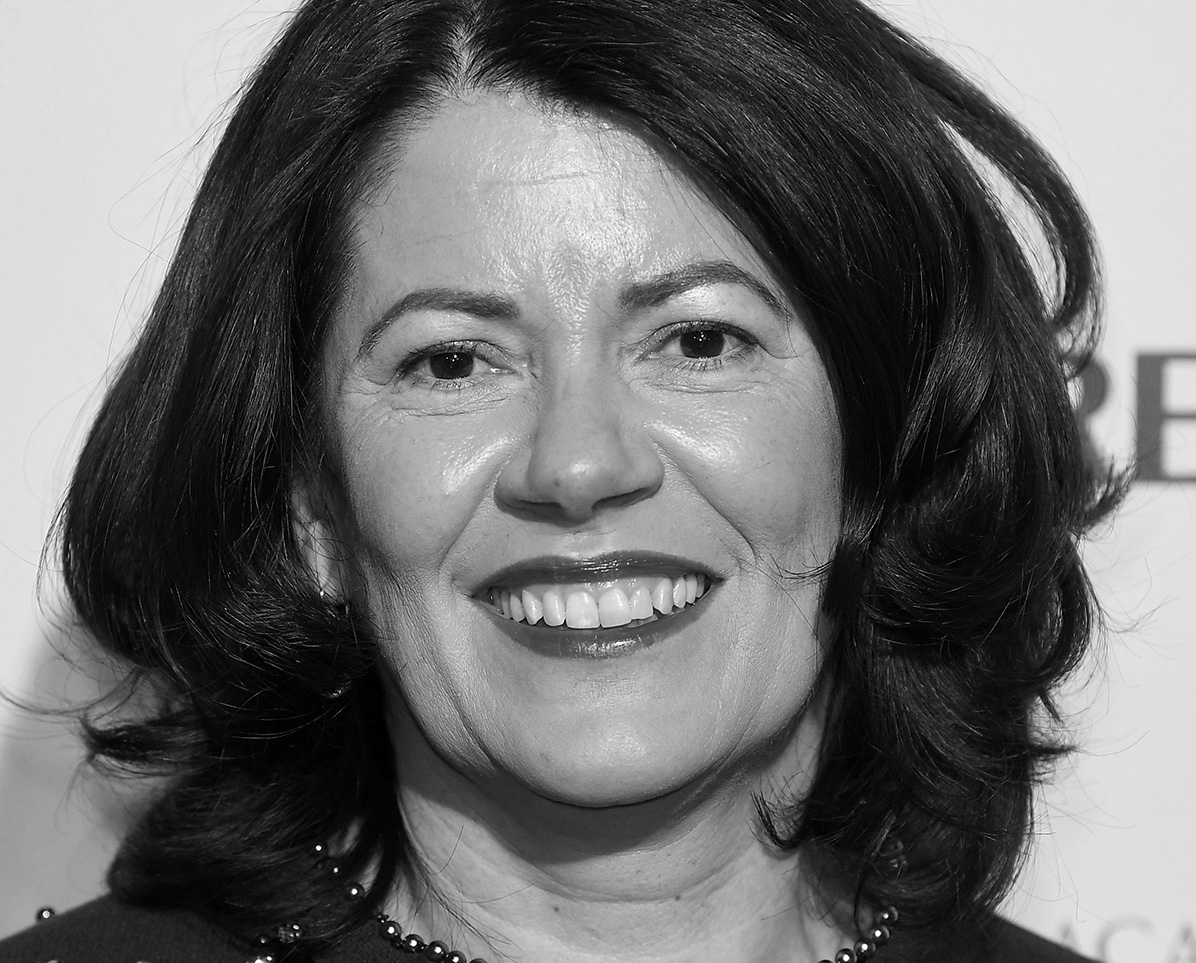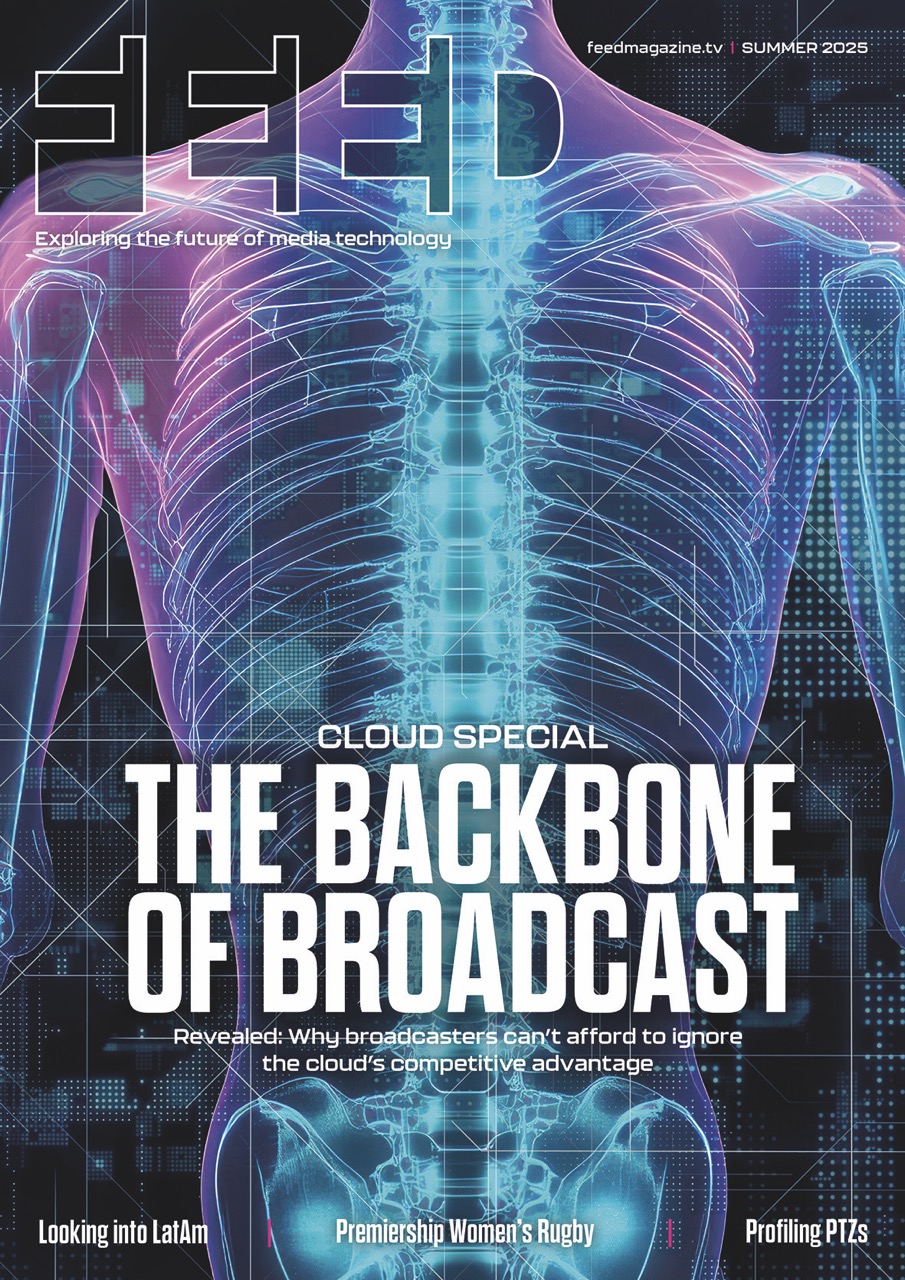Pippa Harris: “I feel that the studios themselves need to be setting up very, very clear waste management programmes”

Posted on Jan 11, 2021 by FEED Staff
Dame Pippa Harris is a producer and chair of Bafta who recently received an Academy Award Best Picture nomination for 1917, which was the first feature film to get certification by the Albert sustainability consortium. Harris talks to us about raising the bar for sustainable production
FEED: You have worked with Bafta’s Albert Consortium to build sustainability and environmental awareness into your productions for film and TV. How do you think the industry is doing generally with sustainability?
Pippa Harris: There’s an increasing awareness and concern about environmental issues, but I think it’s a patchy picture across the industry as a whole. I think television has led the way, primarily because there is much more television production, and the companies makingTV programmes are getting much more experience of working in sustainable ways. They are often making not just one TV show, but a show with multiple episodes, and they’re probably making three or four series.With film, they may only be shooting one production across the year and may not get to shoot another one for a couple of years, so there isn’t that throughput that allows them to set up systems which are sustainable.
Hopefully, that’s going to change, particularly with the support of the big US studios and distributors who are putting more emphasis on sustainability. And the studios in the UK are also stepping up to the plate in terms of making it easier for producers. I think it’s just the practicalities and expense sometimes that are slowing things down.

FEED: What are the differences between UK and US studios? Is there a difference in UK vs American thinking generally that has any effects?
Pippa Harris: I’m not sure there’s a huge difference in thinking, but clearly the DNA of the British film industry is very different from the DNA of Hollywood. In Hollywood, there are powerful studios working day in, day out on dozens of films. If Universal orWarner Bros make a decision about how they’re going to handle waste management, they can implement that and it can have a big effect very rapidly.
In the UK, we have a number of smaller production entities who make, as I said, only one film every couple of years. Clearly, as individual producers, you can affect what you’re doing, but it’s very difficult to make those big structural changes on your own. You need the backup either of a studio or distributor or a large entity.
One example is the handling of waste material.The moment you go into a studio situation in the UK, be that Pinewood or Shepperton or Leavesden, the individual producer and production have to work out their own systems for recycling, both during production and at the end of production.Whereas I feel that the studios themselves need to be setting up very, very clear waste management programmes, which each production can simply, as it were, ‘log in’ to.
We had the experience on 1917 of aiming to get the Albert certification for a sustainable production – we were the first major feature film to do that – and it was very noticeable to me.We had to go around literally putting in place our own blue waste bins, because they weren’t in place in the various locations and studios where we shot. In order to get greater adherence to sustainable goals, you need to make it as easy as possible for people.

Another massive area is diesel generators.You have this ludicrous situation at the moment where each production is hiring their own generators, and taking them around the country with them.They’re often going into big studios, like Pinewood, and taking generators with them. And as we know, those are one of the biggest culprits in terms of the carbon footprint of a production.
On 1917, we looked into using electric generators. And the truth is we couldn’t find enough to work for us.We did find generators that used waste vegetable oil, which are significantly better for the environment than the diesel ones, but they’re still not as good as being able to use electric. Again ideally, there should be some infrastructure in place, something that the studios invest in, and you simply plug into it as a production.You don’t have to hire it from scratch.
It can't just be left to producers and line producers and production managers to reinvent the wheel each time they set up a production
FEED: Is there a tipping point that can be reached where we can get people coordinating better?
Pippa Harris: People like me, other producers, have to start shouting more loudly about sustainability, and about what they want for their productions when they go to a studio and the support they want from the people who are funding them.
We were lucky on 1917 in that our production company, Amblin, had an equal focus on sustainability. It was very keen that we have environmental assistance on set the whole time monitoring what you did. And it’s a bigger question than simply sustainability. It’s also looking at the impact your production has on biodiversity and how you treat the environment in which you’re filming. It was very helpful with all of that and gave us enough money to pay for environmental assistance on set.That isn’t the case with all financiers.
So we need everyone to step up to the plate. It can’t just be left to producers and line producersmand production managers to reinvent the wheel each time they set up a production.

FEED: What are the best means for the industry to share information?
Pippa Harris: The central facilitator for all of this environmental work has been the Albert Consortium, led by Bafta, and 1917 is on its website as a test case. The Albert has become part and parcel of television production. People have gotten used to seeing the Albert sustainability stamp at the end of shows, and if you don’t have it, people are questioning why.
It needs to become the same for film production, there needs to be an assumption that you will be working in a sustainable way. It’s not simply avoiding printing out a vast array of documents you don’t need or banning plastic water bottles; you need to look at every bit of your production. You need to look at the amount of travelmyou’re doing. You need to look at your hair and makeup department – are they using biodegradable wipes, are they using bamboo toothbrushes instead of plastic ones? All these little things add up.
FEED: Are there things that can be learned from other industries?
Pippa Harris: Many of the challenges we face are not just environmental ones, but have to do with welfare more generally and are faced by working people in whatever business they’re in.
I think it’s really heartening that Leavesden has paired up with Charlotte Riley’s company Wonderworks, where it will have a childcare facility so crew can leave their children while they’re working. It’s about thinking about work in its totality. It shouldn’t be just environmental. It’s taking best care of both the environment and the cast and crew.
There has been a massive amount of unnecessary Transatlantic travel going on in the film industry
FEED: What are ways that you can improve wellness and create a more sustainable way of doing things?
Pippa Harris: Travel is a big example. Crew will travel individually to a location or the studio where they’re working.There’s very little thought about how you might share transport to save time, to save resources, to save the environment. That just isn’t on people’s agendas. And it’s illogical that hundreds and hundreds of people travel every day from the middle of London out to Shepperton or Pinewood or Leavesden. And at the studios, you don’t have banks of charge points for electric cars. I have an electric car and there was no way to charge it when I was working. So you then fall back on using a car that isn’t electric.
Big changes in infrastructure need to be put in place that allow people to have a more pleasant working environment, because I think it’s not good for anyone to work a ten-hour day and then be driving yourself back an hour and a half across London. If there were ways where people could share transport, that would be great.

FEED: Bafta’s Screen New Deal report seems to be mostly about production and facilities. What is your assessment about the other parts of the chain, like development and post-production?
Pippa Harris: For us on 1917, the focus was on the actual production process. I think that the issues with post are also enormous. They’re of a different magnitude, though. The vast majority of the problem is to do with production itself. Post is a relatively contained process, unless you’re doing an enormous special effects film. But all the post houses and all the distributors need to start looking at how they’re operating, and making sure that they’re working in the most sustainable way possible.
FEED: A lot of us have been working from home this year. Is there anything that we’ve learned from that which we can incorporate into more sustainable practices?
Pippa Harris: I think that the working-from-home ethos will stay – and the fact that you don’t need to fly to America to have a meeting about an option.You can do that meeting perfectly well via Zoom.
Equally, there has been a massive amount of unnecessary transatlantic travel going on in the film industry. A huge amount. And not just in terms of setting up productions, but in the whole life cycle of a movie.
When it comes to promotion, marketing and the award season that we have become used to over the past 20 years, expecting talent to fly around – not just around America in the UK, but to fly around the world promoting a particular film – I think that will change massively. I don’t think that will continue. I don’t think it will be assumed that if you’re opening a new Spiderman film, you’ve got to fly Tom Holland around the entire world and have him on a red carpet in each territory in order to make the film a success. That will just go and, frankly, it should go. It would be better for everyone.
So it’s looking at the whole life cycle of a film, from the planning stages, and right through to when it opens in a cinema, and minimising travel at every juncture.
This Genius Interview first featured in the Winter 2020/21 issue of FEED magazine.











